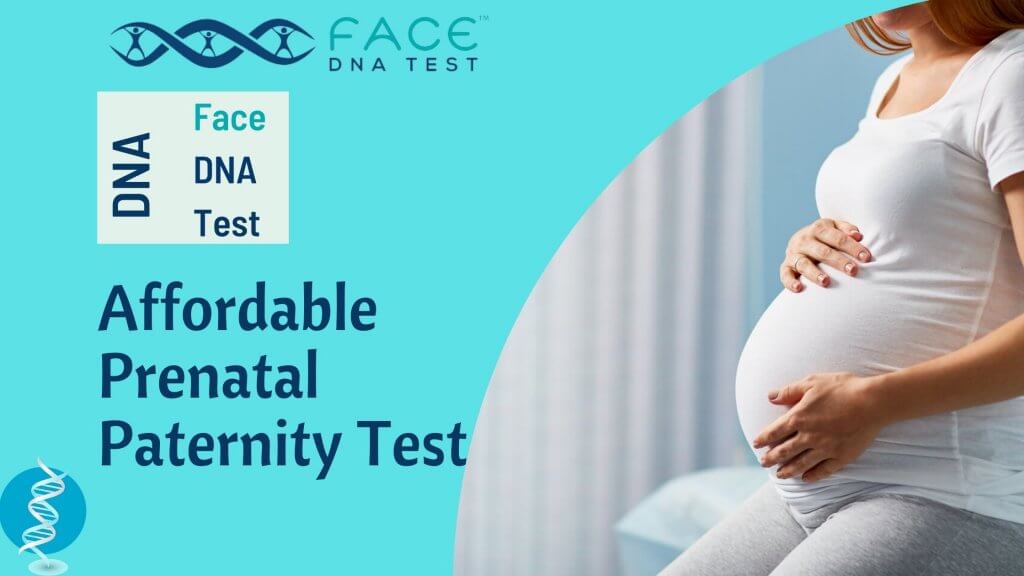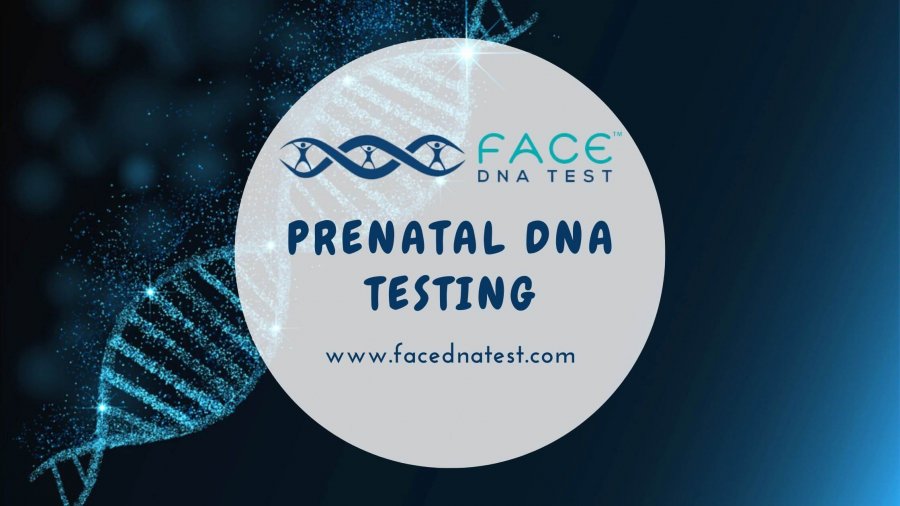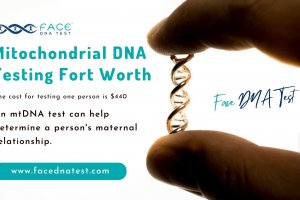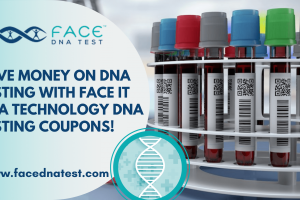Prenatal DNA testing is a method in which DNA sample from the unborn baby is studied to determine the health of the baby. Prenatal screening testing can help in determining whether the child has any genetic defect or aneuploidy. Normally Prenatal DNA tests are 100% accurate.
Prenatal screening tests are usually of 2 different types: Diagnostic test and Screening test.

Prenatal DNA testing can improve your and your child’s life in many ways:
- Through prenatal DNA tests, you can find out the gender of the child which in turn improves your emotional bondage with the child and helps you to prepare accordingly.
- You can find out whether the child has any kind of genetic disorders like Down Syndrome or any kind of inherited disease like Cystic fibrosis which can cause a threat to your child’s life.
- Based on the test result you can ask the doctor to provide you with a nutritional diet chart to keep both the child and the mother healthy.
- Testing can also determine if your body can handle giving birth or if there are any complications.
What is the method of Screening test?
Screening tests are done differently in different trimesters.
- In the first trimester ultrasound is done along with some blood tests.
- In the second trimester usually, a blood test used to do the screening.
- In the last trimester DNA sample from both mother and fetus are used to check whether there are any genetic disorders or not.
There are some risks involving prenatal testing so consult your doctor about the advantages and disadvantages of this test before getting tested to put your mind at ease.
Contact Face DNA Test experts for Prenatal DNA testing or type as “Prenatal paternity test nears me” and you will find lots of options in your city.
What is Genetic Testing in Pregnancy?
Pregnancy-related genetic testing during pregnancy looks for hereditary diseases that parents may pass on to their offspring. It is possible to identify diseases like Tay-Sachs, sickle cell disease, and cystic fibrosis to help plan for future treatment and control pregnancies. Consult your physician about suggested prenatal genetic testing.
What is Genetic Testing in Pregnancy?
Pregnancy-related genetic testing during pregnancy looks for hereditary diseases that parents may pass on to their offspring. It is possible to identify diseases like Tay-Sachs, sickle cell disease, and cystic fibrosis to help plan for future treatment and control pregnancies. Consult your physician about suggested prenatal genetic testing.
Being pregnant is an exciting and nerve-wracking time. Concerns about the child’s paternity may surface during the pregnancy process. Prenatal DNA testing has made it feasible to establish paternity before birth through advancements in genetic testing. Let’s examine some often-asked questions concerning this process.
Accuracy of Prenatal DNA Testing
The fact that a child’s DNA is created at conception and does not alter makes prenatal DNA paternity testing feasible. Prenatal DNA testing is still a reasonably simple process, it is a little more involved than a typical home DNA paternity test. A paternity test while pregnant erases doubt and eliminates the issues one might face in future. At-home paternity testing kits are also available for customers to find answers to questions that affect their relationships. For a paternity test now, one does not have to wait for the baby to arrive. Through Prenatal DNA testing, the issue is resolved with 100% security and primarily focusing on the health of the mother and the growing baby. Prenatal DNA testing has the same accuracy levels as traditional DNA paternity testing. Prenatal DNA paternity testing is very dependable since it offers 99.99% accuracy.
How accurate is a Noninvasive Paternity Test?
A recent study proved that NIPT test or NIPS has very high sensitivity and specificity for Down syndrome. The sensitivity is slightly lower but still substantial for other conditions, such as Trisomy 18 and 13. There are also false positive NIPT screening results, and your healthcare provider will likely order you for additional diagnostic tests.
It is better to contact DNA testing professionals who can assist you properly and help you choose a suitable prenatal test for you. For example, you can search for DNA testing and get numerous options for DNA centres in your city.
What Diseases Can be Detected Through Prenatal Genetic Testing?
More than 190 genetic disorders can be detected by prenatal genetic testing, including:
- Down syndrome
- Spinal muscular atrophy
- Hemoglobinopathies like sickle cell
- Neurological issues
- Metabolic disorders
Detecting risks early empowers families to make informed decisions and improve outcomes.
Conclusion
With DNA testing technologies, biological ties and inherited risks may now be confirmed with more accuracy. Tests such as genetic screening and prenatal paternity DNA testing are instrumental in prenatal and pregnancy circumstances. While genetic testing determines a person’s chance of developing hundreds of congenital disorders, prenatal DNA paternity testing is almost 99% reliable in determining paternity before birth. These sophisticated DNA-based tests enable families to plan and prepare ahead of time. In the end, genetic testing offers parents more knowledge and authority over decisions about their health throughout pregnancy. Knowing the truth about their children’s DNA empowers families and dispels worries.
Parents can now provide essential answers regarding ancestry and illness at an early age, with the advancements in prenatal paternity and genetic testing. DNA testing is reliable, easily accessible, and beneficial for mental clarity. Consult your healthcare practitioners, such as Face DNA Testing, about your choices to determine whether prenatal DNA testing is proper for you.
Accuracy of Prenatal DNA Testing
The fact that a child’s DNA is created at conception and does not alter makes prenatal DNA paternity testing feasible. Prenatal DNA testing is still a reasonably simple process, it is a little more involved than a typical home DNA paternity test. A paternity test while pregnant erases doubt and eliminates the issues one might face in future. At-home paternity testing kits are also available for customers to find answers to questions that affect their relationships. For a paternity test now, one does not have to wait for the baby to arrive. Through Prenatal DNA testing, the issue is resolved with 100% security and primarily focusing on the health of the mother and the growing baby. Prenatal DNA testing has the same accuracy levels as traditional DNA paternity testing. Prenatal DNA paternity testing is very dependable since it offers 99.99% accuracy.
How accurate is a Noninvasive Paternity Test?
A recent study proved that NIPT or NIPS has very high sensitivity and specificity for Down syndrome. The sensitivity is slightly lower but still substantial for other conditions, such as Trisomy 18 and 13. There are also false positive NIPT screening results, and your healthcare provider will likely order you for additional diagnostic tests. It is better to contact DNA testing professionals who can assist you properly and help you choose a suitable prenatal test for you. For example, you can search for DNA testing and get numerous options for DNA centres in your city.
What Diseases Can be Detected Through Prenatal Genetic Testing?
More than 190 genetic disorders can be detected by prenatal genetic testing, including:
- Down syndrome
- Spinal muscular atrophy
- Hemoglobinopathies like sickle cell
- Neurological issues
- Metabolic disorders
Detecting risks early empowers families to make informed decisions and improve outcomes.
Choose Clarity with DNA Test
Get Accurate Answers With our Test!.
-
- Accurate
- Quick Result
- Private and Secure
- Affordable

Conclusion
With DNA testing technologies, biological ties and inherited risks may now be confirmed with more accuracy. Tests such as genetic screening and prenatal paternity DNA testing are instrumental in prenatal and pregnancy circumstances. While genetic testing determines a person’s chance of developing hundreds of congenital disorders, prenatal DNA paternity testing is almost 99% reliable in determining paternity before birth. These sophisticated DNA-based tests enable families to plan and prepare ahead of time. In the end, genetic testing offers parents more knowledge and authority over decisions about their health throughout pregnancy. Knowing the truth about their children’s DNA empowers families and dispels worries.
Parents can now provide essential answers regarding ancestry and illness at an early age, with the advancements in prenatal paternity and genetic testing. DNA testing is reliable, easily accessible, and beneficial for mental clarity. Consult your healthcare practitioners, such as Face DNA Testing, about your choices to determine whether prenatal DNA testing is proper for you.







1 Comment
Leave your reply.